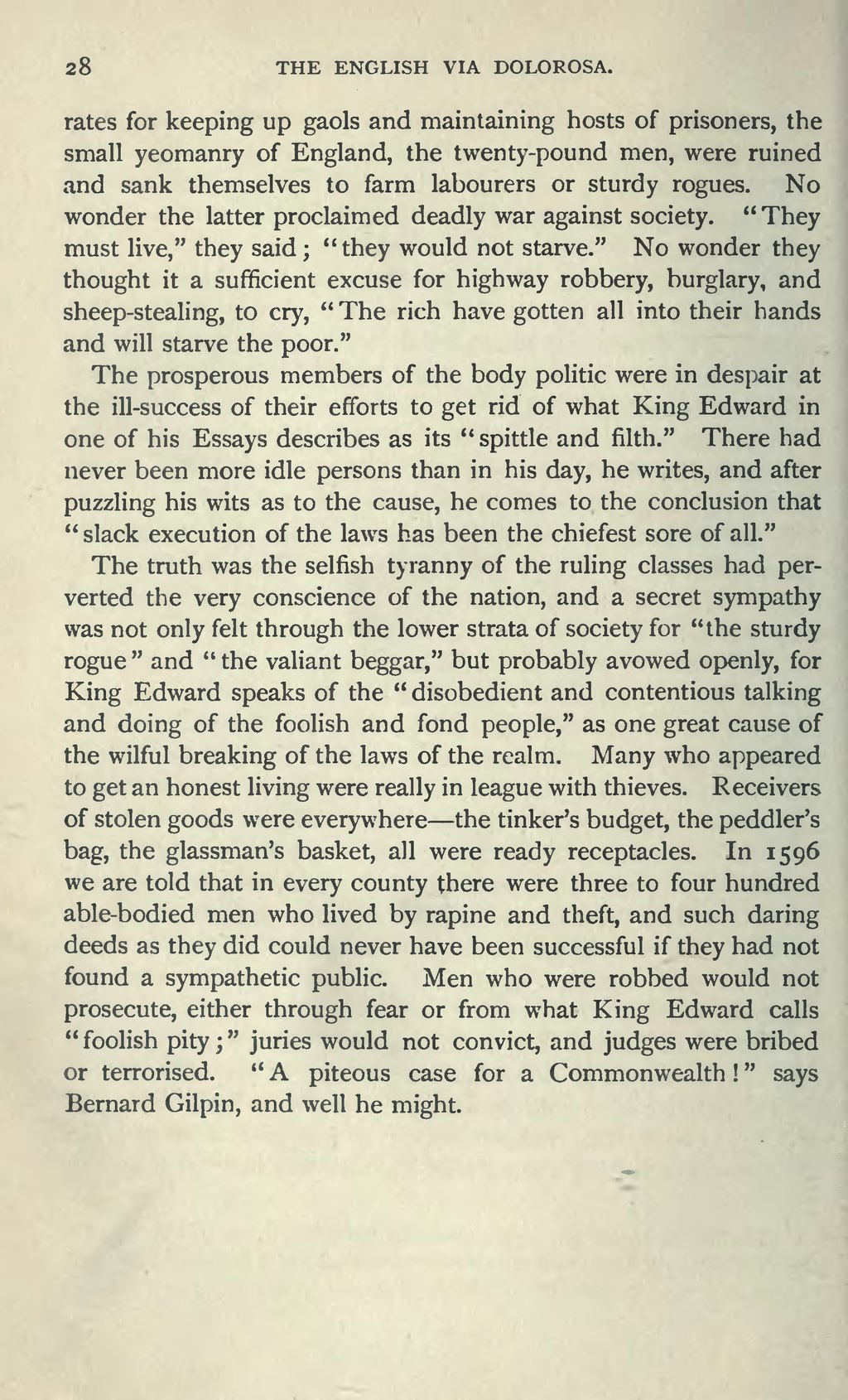rates for keeping up gaols and maintaining hosts of prisoners, the small yeomanry of England, the twenty-pound men, were ruined and sank themselves to farm labourers or sturdy rogues. No wonder the latter proclaimed deadly war against society. "They must live," they said; "they would not starve." No wonder they thought it a sufficient excuse for highway robbery, burglary, and sheep-stealing, to cry, "The rich have gotten all into their hands and will starve the poor."
The prosperous members of the body politic were in despair at the ill-success of their efforts to get rid of what King Edward in one of his Essays describes as its "spittle and filth." There had never been more idle persons than in his day, he writes, and after puzzling his wits as to the cause, he comes to the conclusion that "slack execution of the laws has been the chiefest sore of all."
The truth was the selfish tyranny of the ruling classes had perverted the very conscience of the nation, and a secret sympathy was not only felt through the lower strata of society for "the sturdy rogue" and "the valiant beggar," but probably avowed openly, for King Edward speaks of the "disobedient and contentious talking and doing of the foolish and fond people," as one great cause of the wilful breaking of the laws of the realm. Many who appeared to get an honest living were really in league with thieves. Receivers of stolen goods were everywhere—the tinker's budget, the peddler's bag, the glassman's basket, all were ready receptacles. In 1596 we are told that in every county there were three to four hundred able-bodied men who lived by rapine and theft, and such daring deeds as they did could never have been successful if they had not found a sympathetic public. Men who were robbed would not prosecute, either through fear or from what King Edward calls "foolish pity;" juries would not convict, and judges were bribed or terrorised. "A piteous case for a Commonwealth!" says Bernard Gilpin, and well he might.
